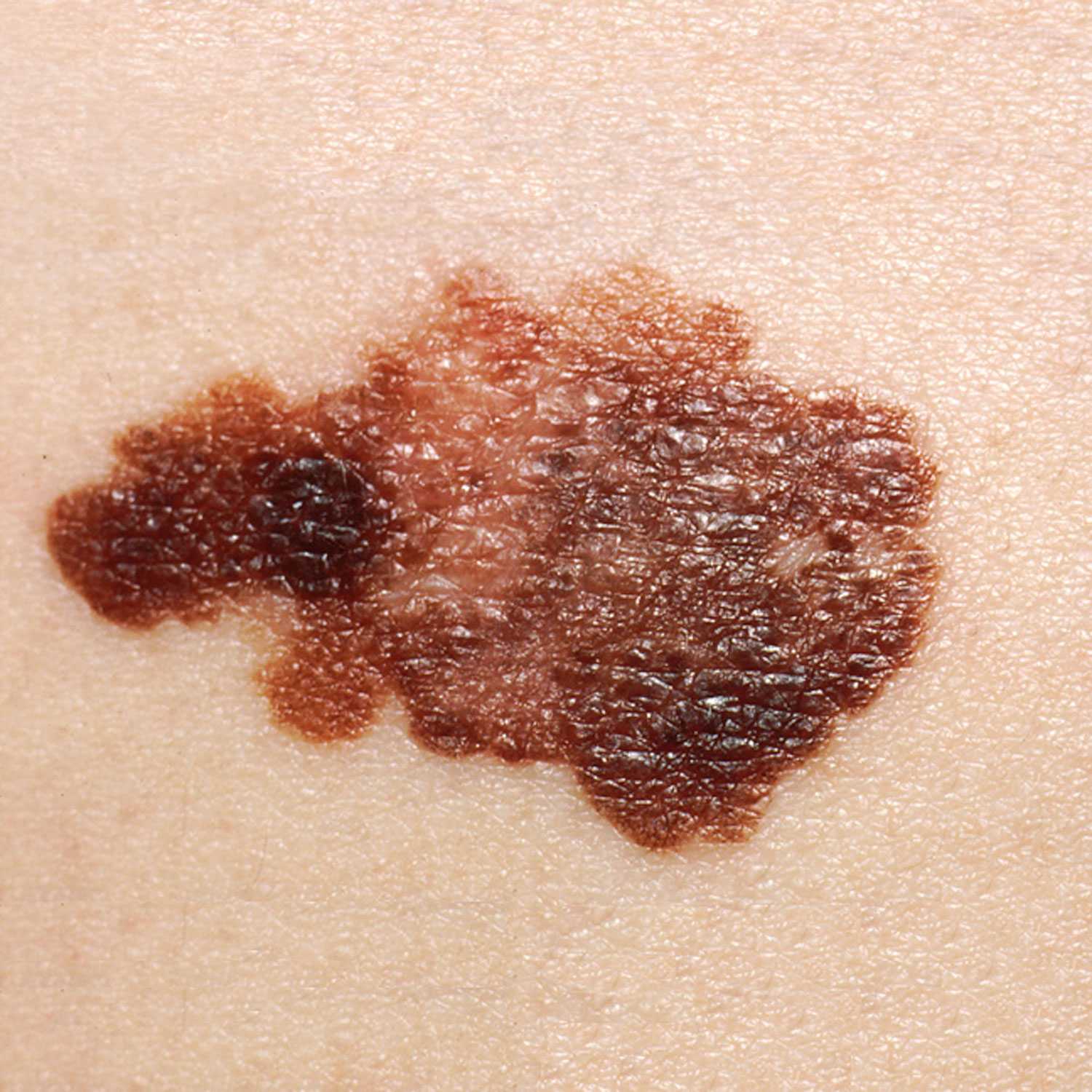Skin cancer melanoma
What is melanoma?
Melanoma is a serious form of skin cancer. It can be genetic.
Normal skin cell convert to abnormal cancer cells and form melanoma.
Melanoma can form of the skin anywhere in the body, including hard to see places like the scalp, in the lining of the mouth, in between fingers, toes, bottom of the feet, fingernails, toenails,
buttocks, genitals, back, etc.
What are the symptoms of melanoma?
Melanoma can appear as a brown or black mole or birthmark.
But melanoma has some other features which your healthcare provider can diagnose.
They are asymmetric [one half looks different than the other half], Uneven borders, different colors, Larger than the eraser on the end of a pencil, it can grow bigger, change color, shape, Bleed,
become red, swollen, crusty.
Unfortunately, melanoma can be aggressive and spread to deeper organs in the body.
How is melanoma diagnosed?
Please to see your healthcare provider as soon as possible.
The healthcare provider will perform skin exam all over your body.
If there is a suspicion for skin cancer, a 'biopsy'is performed. The skin is numbed with an injection, and the abnormal skin is removed.
It is then sent to another healthcare provider to look at the skin under the microscope to rule out cancer.
How is melanoma treated?
If the biopsy is positive for melanoma, staging is done.
Staging determines how deep the cancer has spread in the skin. Treatment will depend on the staging.
Some of the treatment methods are Surgery, immunotherapy, targeted therapy, chemotherapy, radiation therapy.
Your healthcare provider will determine the right treatment for you.
What happens after treatment?
Your healthcare provider will recommend frequent follow-ups to check the skin to see if the melanoma has come back, or if new melanomas appear.
They will perform imaging tests to see if melanoma has spread to other organs in the body.
You should check your skin frequently, at least once in six months, to look for any suspicious skin lesions. You should obtain help from your family member to look in hard to see places for abnormal
suspicious skin lesions.
Seek your healthcare providers help immediately if you suspect any abnormal skin lesion.
What happens if melanoma comes back or new melanoma appears?
See your healthcare provider immediately.
Treatment in the form of surgery, radiation therapy, chemotherapy, immunotherapy will be recommended by your healthcare provider.
How can I prevent melanoma?
Melanoma can be prevented by protecting the skin from sun rays, UV rays.
Start using sun protection as a baby or as early as possible.
Stay out of the sun in the middle of the day between 10 AM-4 PM.
Wear sunscreen with SPF more than 50, reapply frequently.
Use UV rays barrier protection like widebrimmed hats, longsleeved shirts, or long pants.
Do not use tanning beds.
People with genetic risk should be screened frequently by healthcare providers.
Melanoma of the skin

